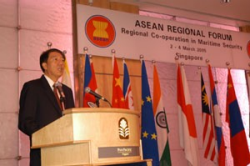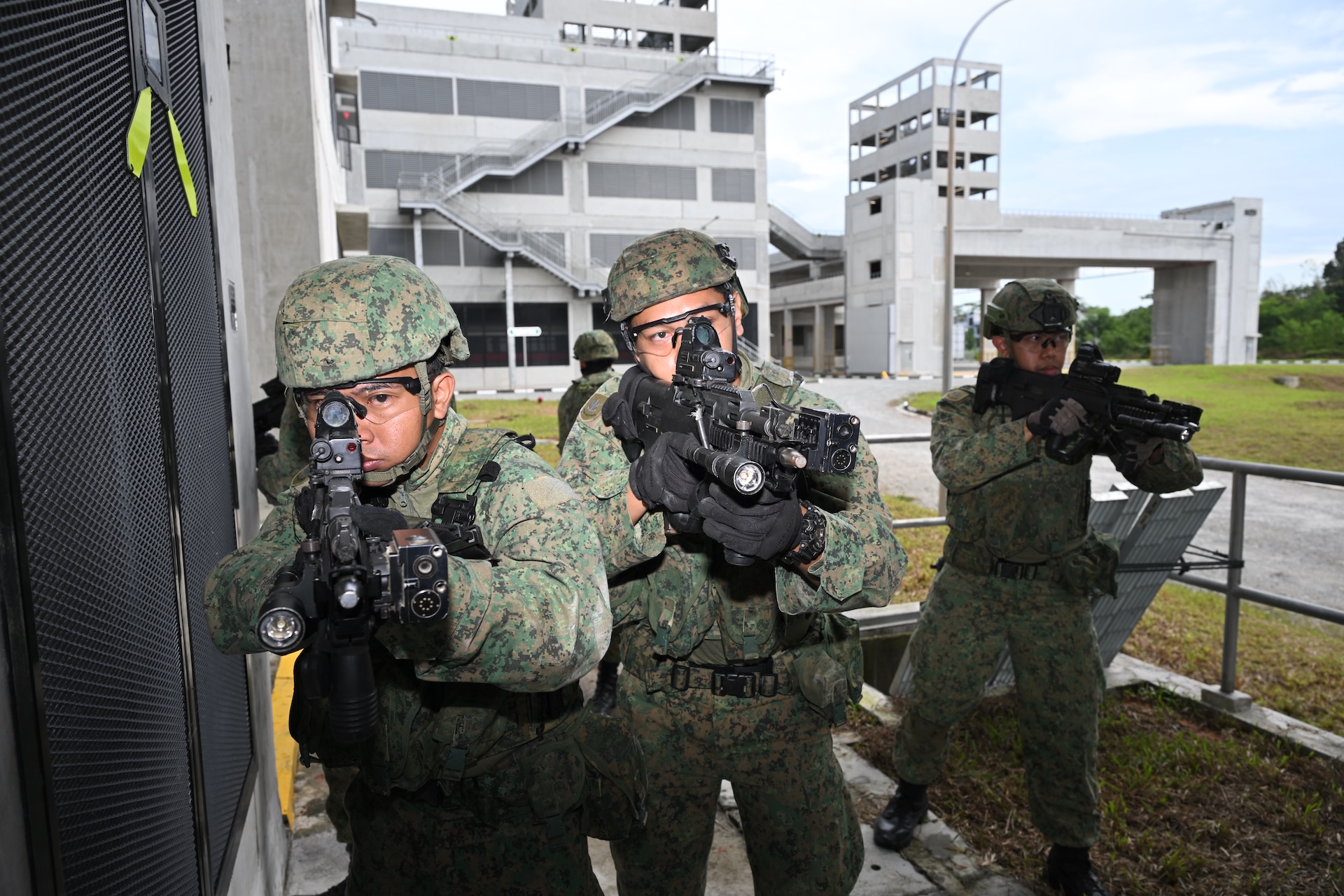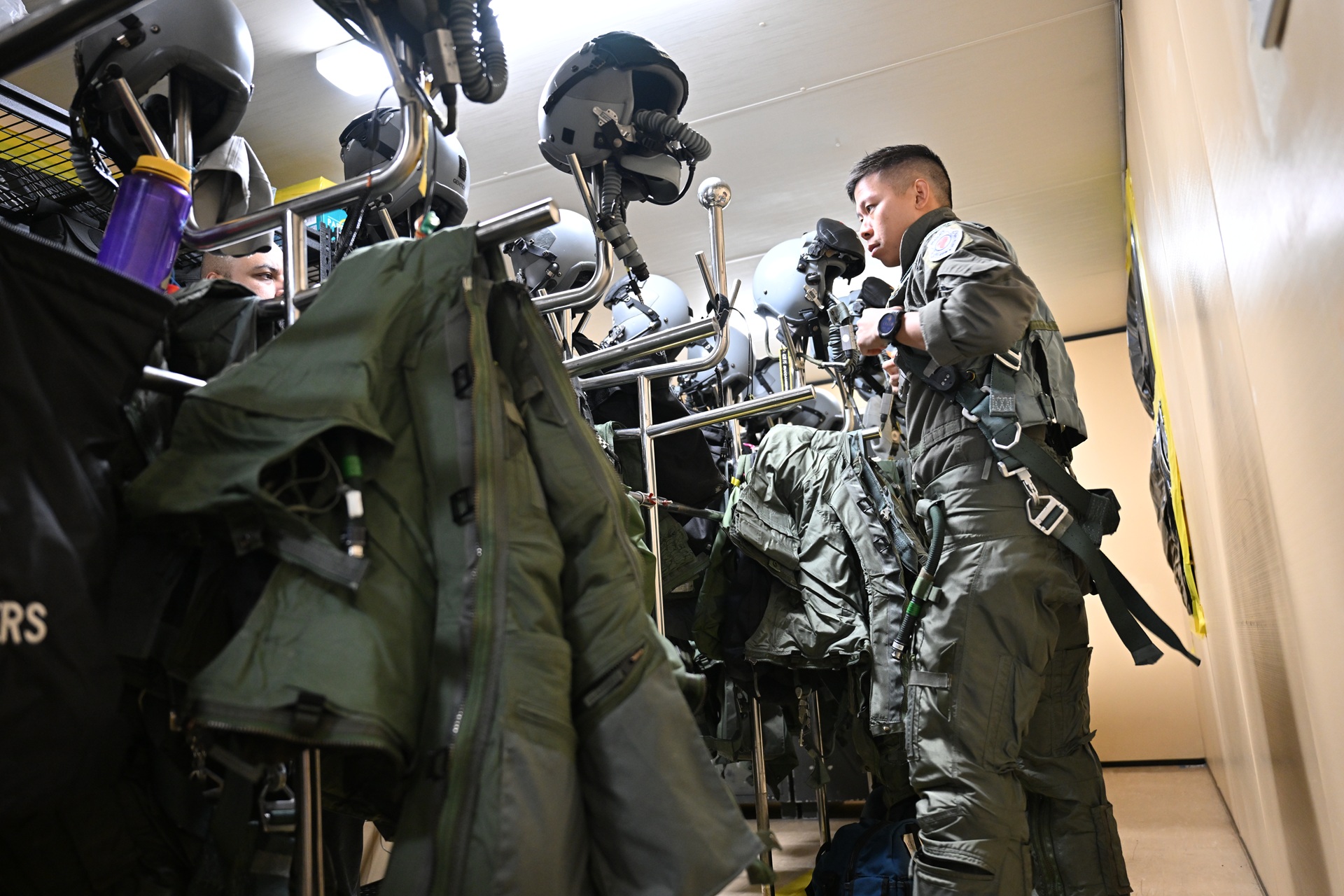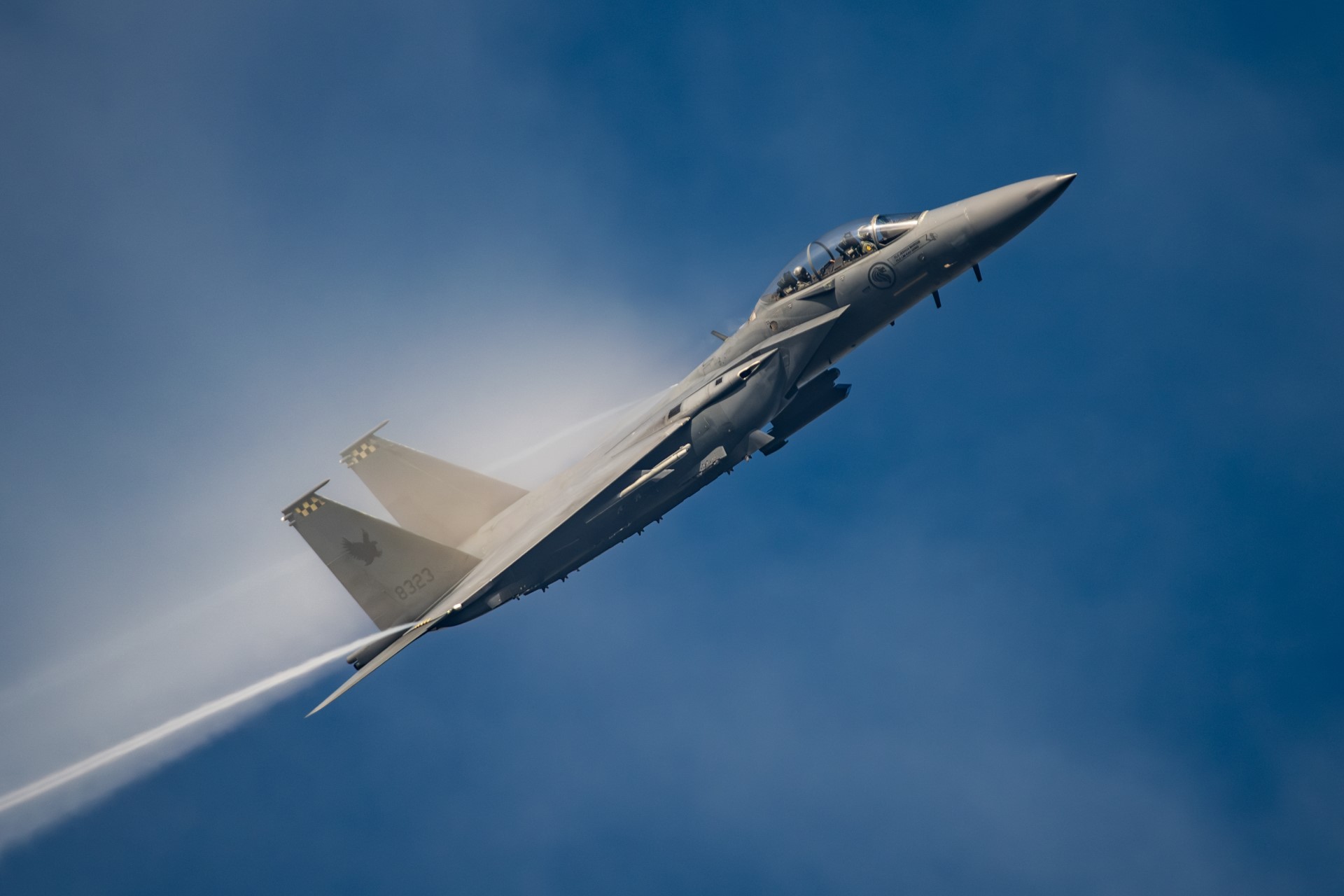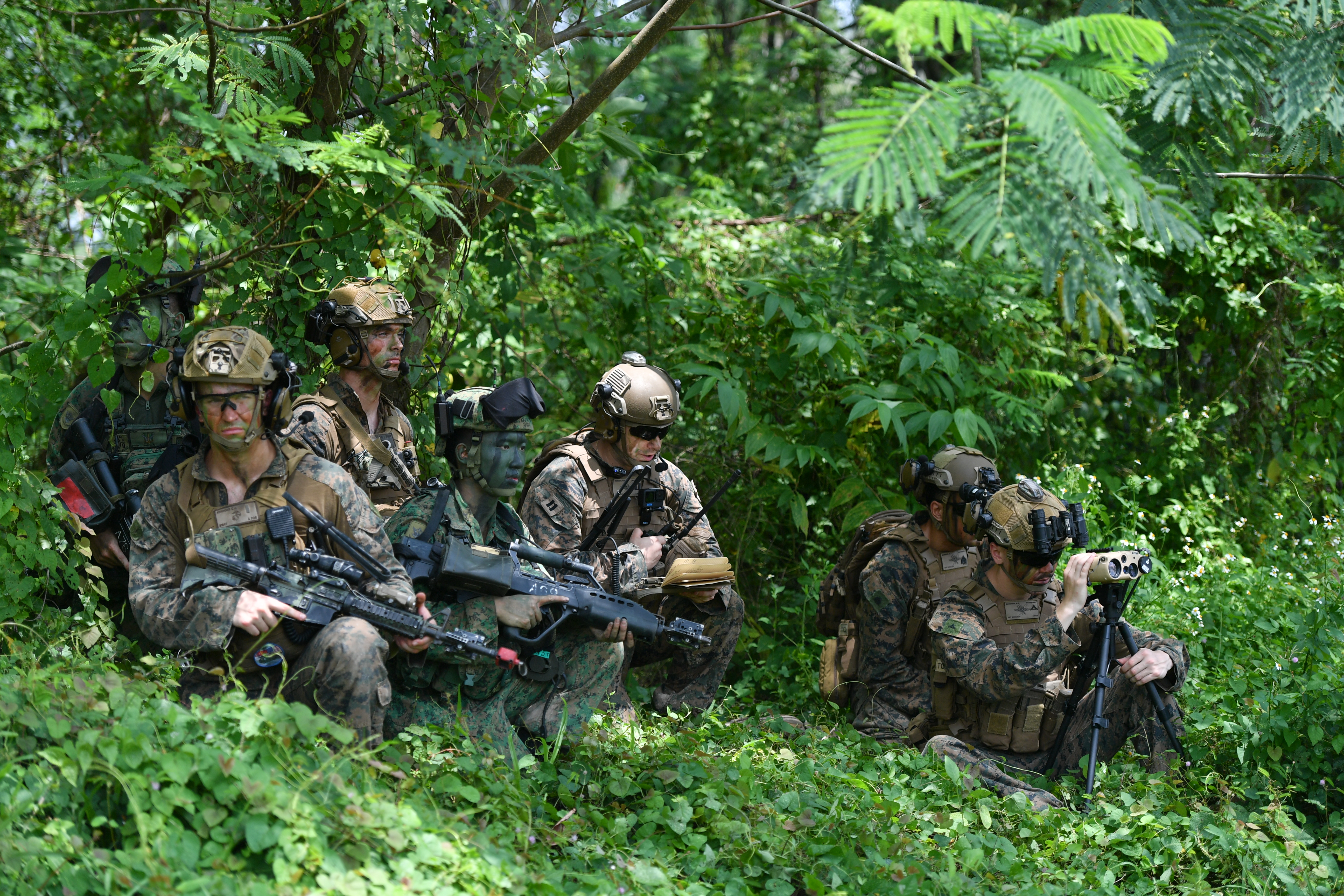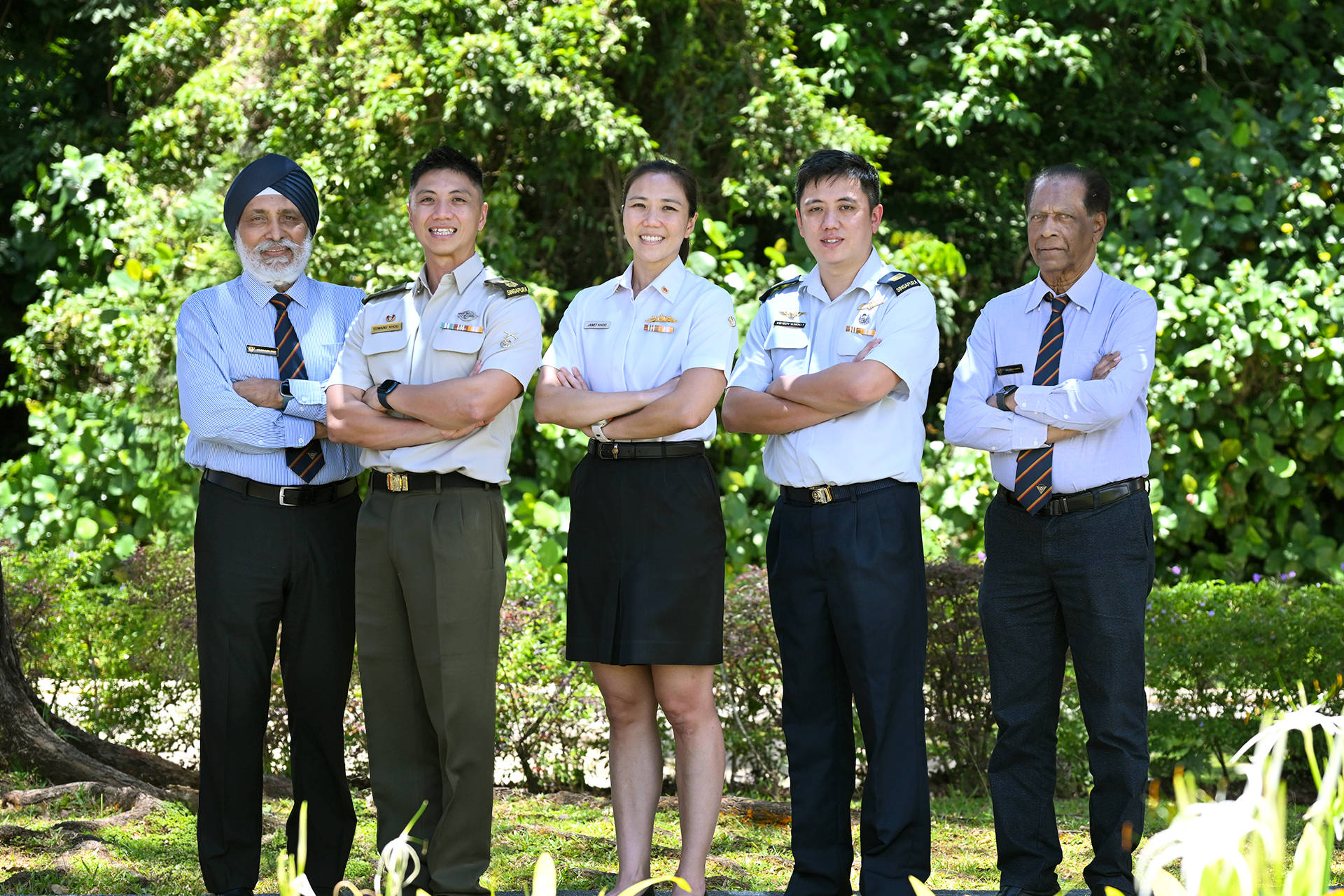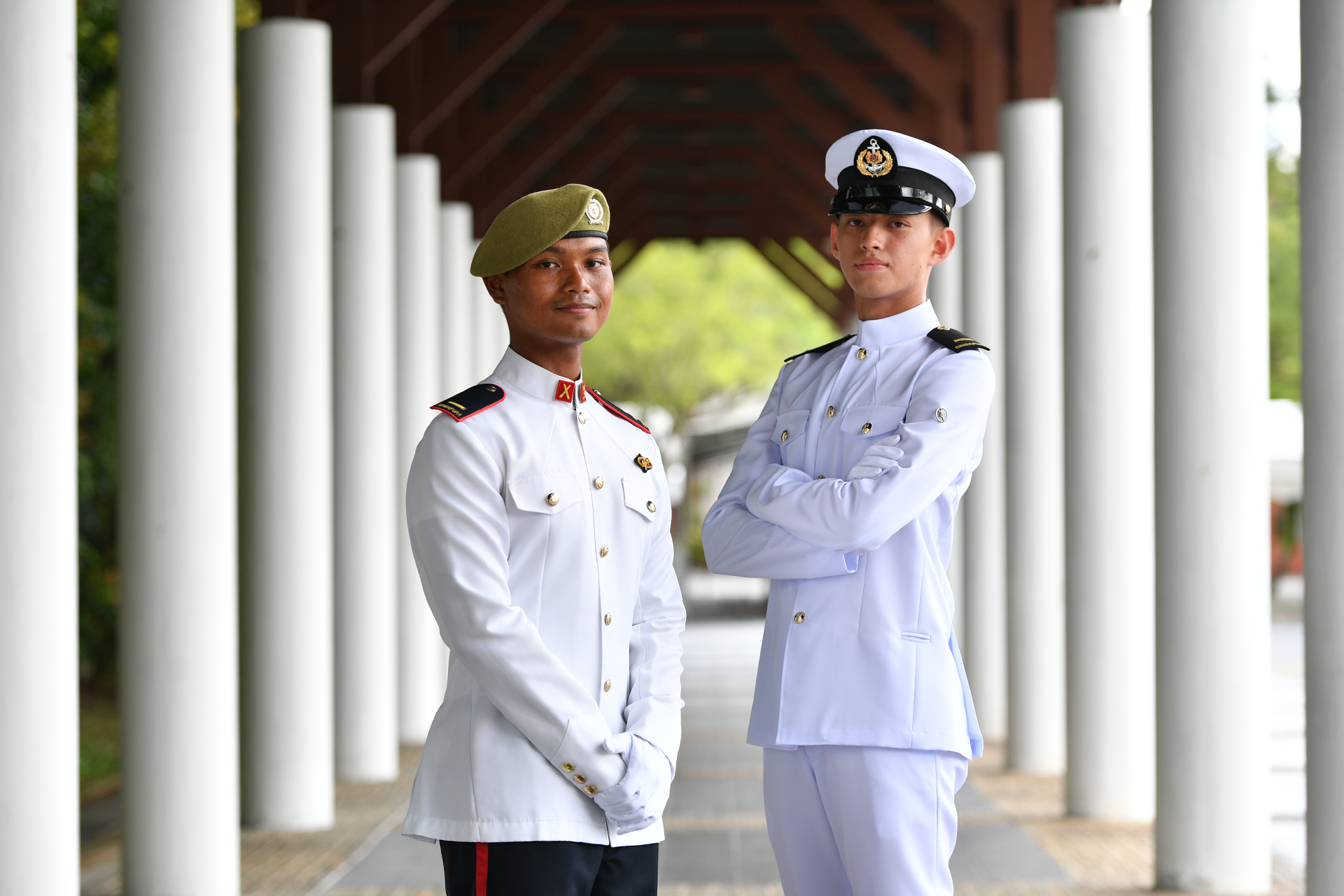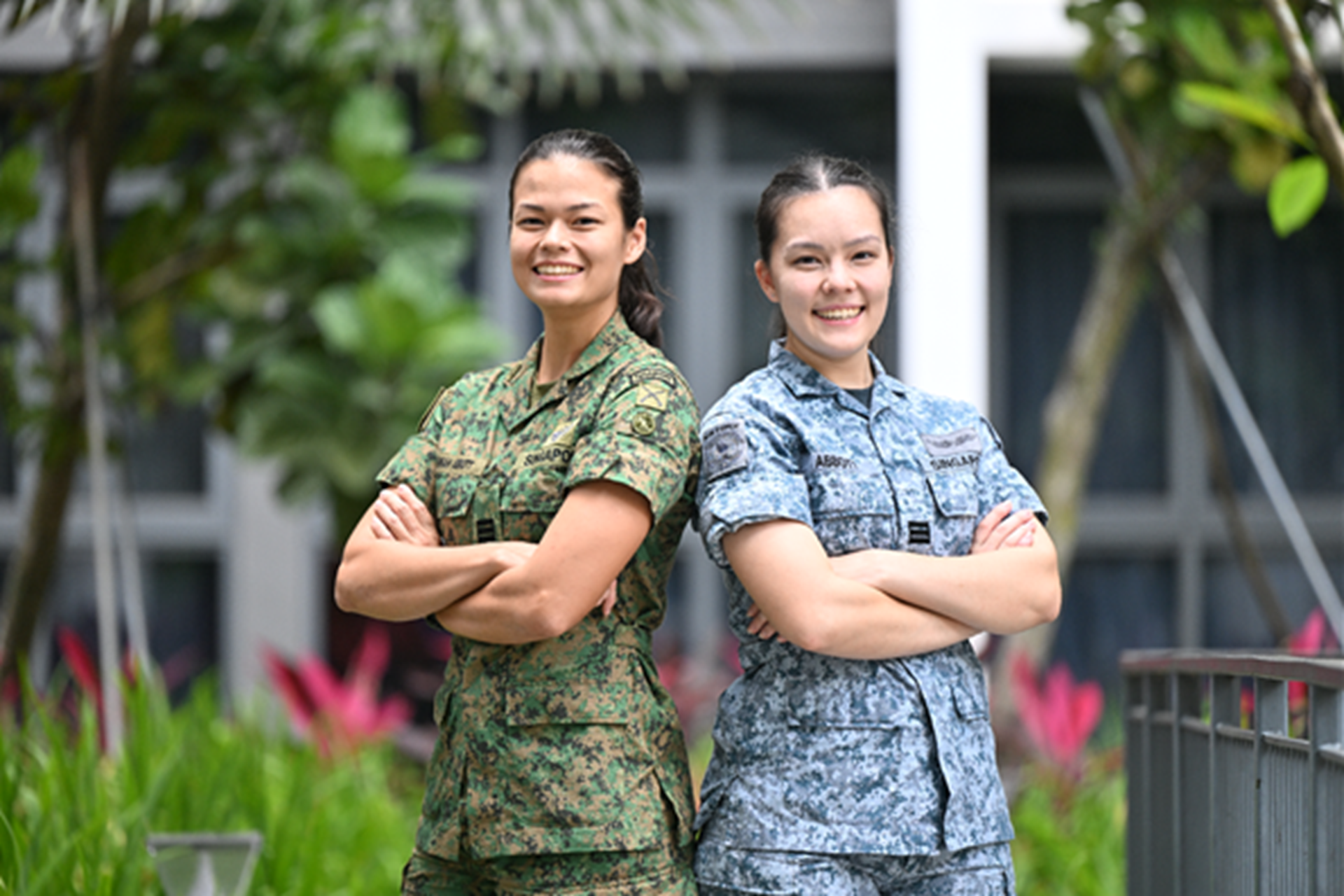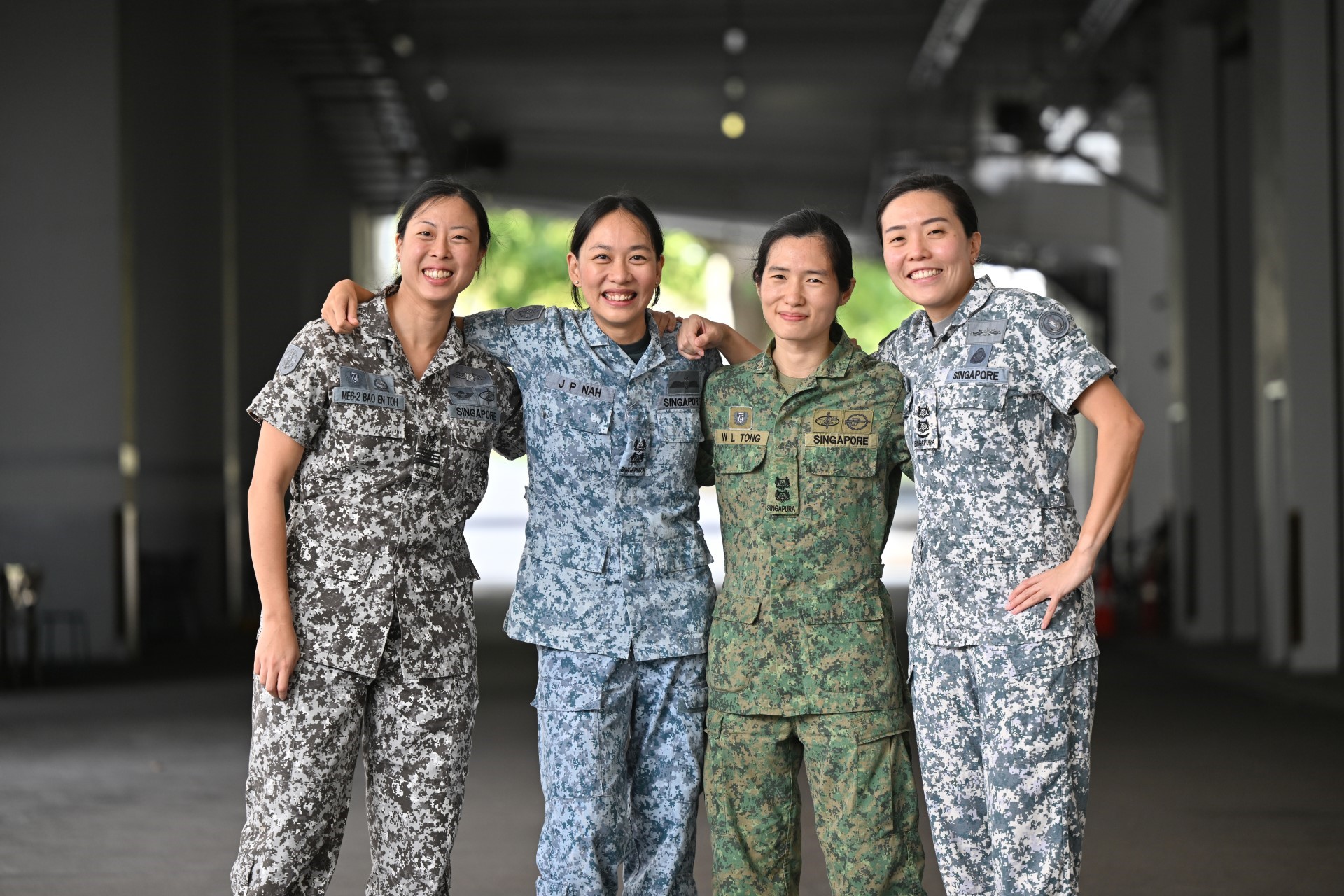TACKLING TERROR TOGETHER
PHOTO //
Any would-be terrorist thinking of hijacking a merchant vessel and using it as a floating bomb to ram it into Singapore's harbour, had better think twice.
The RSN is not the only organisation ready to thwart such plans.
Be prepared to face off against the Police Coast Guard (PCG), Maritime and Port Authority (MPA), Immigration and Checkpoints Authority (ICA), as well as the other two Services of the SAF.
In short, defending Singapore against all forms of maritime threats is a multi-agency effort.
Delegates attending the ASEAN Regional Forum (ARF) Confidence Building Measure meeting, witnessed such a multi-agency show-of-force during a demonstration held near Pulau Sudong on 3 Mar (See box on right).
COSCOM Commander, COL Chng Teow Hiang, explained that such co-ordination and integration among the agencies ensure that maritime security incidents are managed effectively.
And such co-operation is not a one-off incident.
COL Chng revealed that in day-to-day operations, the various agencies work well together, supporting each other and sharing information.
"Should there be any incident, the procedures and processes are in place. All we need to do is make the call, activate the men, and everything falls into place. There is no real difficulty in co-ordinating the various assets and resources," he said.
Beyond Singapore's shores, multilateral co-operation between countries is also essential to deal with regional maritime security threats.
Minister for Defence, Mr Teo Chee Hean, stressed this point during the opening of the ARF meeting on 2 Mar.
He noted that, in the past year, regional armed forces and their extra-regional counterparts had collectively grouped together for such co-operation.
As examples, Mr Teo cited the inaugural maritime security exercise serial conducted last September by the Five Power Defence Arrangements (FPDA) countries, and the professional exchanges in maritime security issues during the Western Pacific Naval Symposium (WPNS).
The FPDA, which brings together Australia, Malaysia, New Zealand, Singapore and the United Kingdom, has expanded its focus to deal with non-conventional threats, with particular emphasis on the maritime domain, since last June.
Meanwhile, the 22 navies of the WPNS will conduct a maritime security exercise in May.
"These are all very positive developments that build confidence, enhance capabilities, and also create a framework of inter-operability that can be useful for future contingencies," said Mr Teo.
Looking ahead, Mr Teo encouraged ARF member countries to "move beyond dialogue on maritime security and work towards conducting an ARF maritime security exercise".
"The ARF's outward-looking and inclusive nature makes it particularly relevant for addressing the pressing security challenges of our day, for these are not only trans-national in nature, but often global in their impact," he said.
About 170 maritime security experts from the military, enforcement, port and shipping, and policy agencies of ARF member countries attended the ARF meeting, which concluded on 4 Mar.
